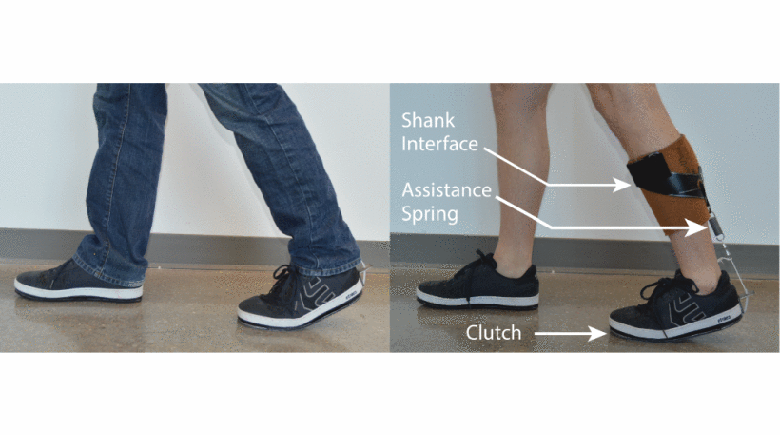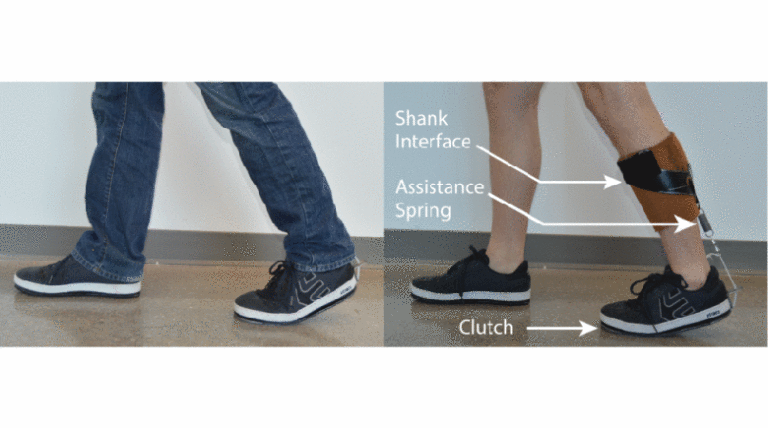
Here, we present the design of a novel unpowered ankle exoskeleton that is low profile, lightweight, quiet, and low cost to manufacture, intrinsically adapts to different walking speeds, and does not restrict non-sagittal joint motion; while still providing assistive ankle torque that can reduce demands on the biological calf musculature. This paper is an extension of the previously-successful ankle exoskeleton concept by Collins, Wiggin, and Sawicki. We created a device that blends the torque assistance of the prior exoskeleton with the form-factor benefits of clothing. Our design integrates a low profile under-the-foot clutch and a soft conformal shank interface, coupled by an ankle assistance spring that operates in parallel with the user’s calf muscles. We fabricated and characterized technical performance of a prototype through benchtop testing and then validated device functionality in two gait analysis case studies. To our knowledge, this is the first ankle plantarflexion assistance exoskeleton that could be feasibly worn under typical daily clothing, without restricting ankle motion, and without components protruding substantially from the shoe, leg, waist, or back. Our new design highlights the potential for performance-enhancing exoskeletons that are inexpensive, unobtrusive, and can be used on a wide scale to benefit a broad range of individuals throughout society, such as the elderly, individuals with impaired plantarflexor muscle strength, or recreational users. In summary, this paper demonstrates how an unpowered ankle exoskeleton could be redesigned to more seamlessly integrate into daily life, while still providing performance benefits for common locomotion tasks.

